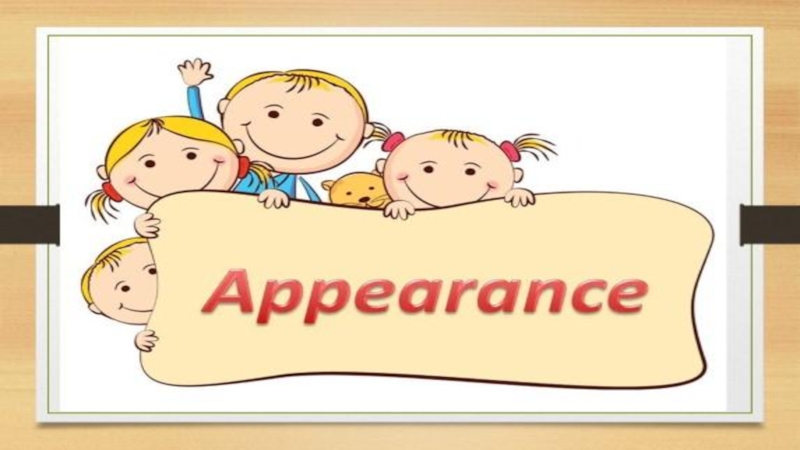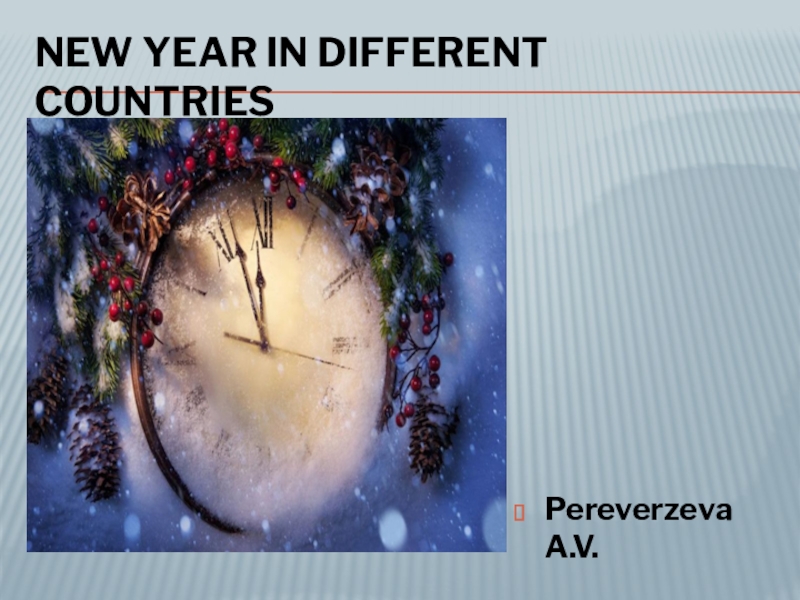- Главная
- Разное
- Образование
- Спорт
- Естествознание
- Природоведение
- Религиоведение
- Французский язык
- Черчение
- Английский язык
- Астрономия
- Алгебра
- Биология
- География
- Геометрия
- Детские презентации
- Информатика
- История
- Литература
- Математика
- Музыка
- МХК
- Немецкий язык
- ОБЖ
- Обществознание
- Окружающий мир
- Педагогика
- Русский язык
- Технология
- Физика
- Философия
- Химия
- Шаблоны, фоны, картинки для презентаций
- Экология
- Экономика
Презентация, доклад по английскому языку на тему Reported speech (9класс)
Содержание
- 1. Презентация по английскому языку на тему Reported speech (9класс)
- 2. He said, "I
- 3. Вопросы в косвенной речи в английском языке передают
- 4. "Where does John live?" she asked me.
- 5. Общие и альтернативные вопросы вводятся в предложение
- 6. He asked, “Do you want to
- 7. Специальные вопросы вводятся вопросительным словом (when, where,
- 8. He asked, “How are you?” He
- 9. Измените предложения по образцу, используя косвенную речь.Образец:
- 10. Передайте следующие повествовательные предложения в косвенной речи.1.
- 11. Используйте tell smb вместо said to smb1.The woman said to
- 12. Перевод вопросительных предложений в косвенную речь Передайте следующие
- 13. 10. I said to him, «How long
- 14. Передайте следующие общие вопросы в косвенной речи.1.I
- 15. 10. Oleg said to me, «Will
- 16. Вы встретили бывшего соседа Уильяма. Он задает
- 17. Для перевода в косвенную речь просьб, приказаний
- 18. She told him, «Please wait here till
- 19. Просьбы какой-либо вещи или предмета переводятся в
- 20. Слайд 20
He said, "I won't answer your question now." He told her, "I want to leave for Delhi tonight." He said, "I will come tomorrow." She said, "I will see
Слайд 2 He said, "I won't answer your question now."
He told her, "I want to leave for Delhi tonight."
He said, "I will come tomorrow."
She said, "I will see you here tomorrow."
"I have an appointment(встреча) next week," she said.
"I was on holiday last week," he told us.
"John called 10 minutes ago," she told me.
Слайд 3Вопросы в косвенной речи в английском языке передают лишь содержание вопроса прямой
речи, но сами они вопросами, как таковыми, не являются. Исходя из этого, порядок слов в косвенных вопросах такой же, как в утвердительных предложениях, то есть подлежащее следует до сказуемого, вспомогательные глаголы (do, did) не используются, а также в конце таких вопросов не ставится вопросительный знак.
Например:
He said, "When are you leaving?" – He asked me when I was leaving. Он спросил: «Когда ты уезжаешь?» - Он спросил меня, когда я уезжаю. I said, "Where are you staying?" – I asked her where she was staying. Я спросил: «Где ты остановилась?» - Я спросил ее, где она остановилас
Например:
He said, "When are you leaving?" – He asked me when I was leaving. Он спросил: «Когда ты уезжаешь?» - Он спросил меня, когда я уезжаю. I said, "Where are you staying?" – I asked her where she was staying. Я спросил: «Где ты остановилась?» - Я спросил ее, где она остановилас
Слайд 4"Where does John live?" she asked me. John asked, "Where did you go last
weekend?"
He asked, "Why are you staring at me?"
He asked, "Why are you staring at me?"
Слайд 5Общие и альтернативные вопросы вводятся в предложение союзами if / whether:
"Do you speak English?"
she asked him. – She asked him if he spoke English.
Она спросила его, говорит ли он по-английски.
"Do you like this shirt?" she asked.
"Are you British or French?" they asked me.
"Did you come by train?" she required. (поинтересовалась)
Она спросила его, говорит ли он по-английски.
"Do you like this shirt?" she asked.
"Are you British or French?" they asked me.
"Did you come by train?" she required. (поинтересовалась)
Слайд 6
He asked, “Do you want to dance?”
He asked, “Are you going
to the shop?”
He asked, “Did you watch the latest film?”
He asked, “Has John arrived?”
He asked, “Were you going to the gym?”
He asked, “Have you been going to the gym?”
He said, “I will go to school.”
He asked, “Can I help you?”
He asked, “Will you have lunch with me?”
He asked, “Must I do the shopping?”
He asked, “Did you watch the latest film?”
He asked, “Has John arrived?”
He asked, “Were you going to the gym?”
He asked, “Have you been going to the gym?”
He said, “I will go to school.”
He asked, “Can I help you?”
He asked, “Will you have lunch with me?”
He asked, “Must I do the shopping?”
Слайд 7Специальные вопросы вводятся вопросительным словом (when, where, why, и др.):
"What is your
name?" he asked me. – He asked what my name was.
«Как тебя зовут?» спросил он меня. – Он спросил, как меня зовут.
"How old is your mother?" he asked her. – He asked her how old her mother was.
«Сколько лет твоей матери?» спросил он ее. – Он спросил ее, сколько лет ее матери.
Слайд 8He asked, “How are you?” He asked, “Where are you going?”
He asked, “Whom did you call?”
He asked, “Where have you been?”
He asked, “What were you doing?”
He asked, “What have you been doing?”
Слайд 9Измените предложения по образцу, используя косвенную речь.
Образец: It is a nice
place to go. — He said (that) it was a nice place to go.
1. The fish is very good.
2. I’ll have a chicken.
3. The chicken is not properly cooked.
4. I’m very sorry.
5. I’ll get you another book.
6. We come here quite often.
7. I’ll never come here again.
8.I have seen this film.
9. We visited this place on Monday.
10. It was raining heavily all day yesterday.
1. The fish is very good.
2. I’ll have a chicken.
3. The chicken is not properly cooked.
4. I’m very sorry.
5. I’ll get you another book.
6. We come here quite often.
7. I’ll never come here again.
8.I have seen this film.
9. We visited this place on Monday.
10. It was raining heavily all day yesterday.
Слайд 10 Передайте следующие повествовательные предложения в косвенной речи.
1. Oleg said, «My room
is on this floor.»
2. He said, «I am sure she will ring me up tomorrow.»
3. Michael said, «I saw them at my parents’ house last year.»
4. He said, “I haven’t seen my cousin today.»
5. She said, «I didn’t go shopping yesterday.»
6. Tom said, «I have already had breakfast here, so I am not hungry.»
7. He said, «I received a letter from him a week ago.»
8. «I am going to the theatre tonight» he said to me.
9. Mike said, «I spoke to Mr Brown this morning.»
10. I said to them, «Now I can give you her mobile number.»
2. He said, «I am sure she will ring me up tomorrow.»
3. Michael said, «I saw them at my parents’ house last year.»
4. He said, “I haven’t seen my cousin today.»
5. She said, «I didn’t go shopping yesterday.»
6. Tom said, «I have already had breakfast here, so I am not hungry.»
7. He said, «I received a letter from him a week ago.»
8. «I am going to the theatre tonight» he said to me.
9. Mike said, «I spoke to Mr Brown this morning.»
10. I said to them, «Now I can give you her mobile number.»
Слайд 11Используйте tell smb вместо said to smb
1.The woman said to her son, «I am
glad I am here.»
2. Mike said, «We have bought these books today.»
3. She said to me, «Now I can read your translation.»
4. «This man spoke to me on the road,» said the woman.
5. «I can’t explain this rule to you,» my classmate said to me.
6. The teacher said to the class, «We shall discuss this subject tomorrow.»
7. Our teacher said, «Brontes’ novels are very interesting.» 8. She said, «You will read this book in the 9th form.»
9. Nellie said, «I read ‘Jane Eyre’ last year.»
10. «My friend lives in Moscow,» said Alec.
11. «You have not done your work well,» the teacher said to me.
12. The poor man said to the rich man, «My horse is wild. It can kill your horse.»
13. The rich man said to the judge, «This man’s horse has killed my horse.»
2. Mike said, «We have bought these books today.»
3. She said to me, «Now I can read your translation.»
4. «This man spoke to me on the road,» said the woman.
5. «I can’t explain this rule to you,» my classmate said to me.
6. The teacher said to the class, «We shall discuss this subject tomorrow.»
7. Our teacher said, «Brontes’ novels are very interesting.» 8. She said, «You will read this book in the 9th form.»
9. Nellie said, «I read ‘Jane Eyre’ last year.»
10. «My friend lives in Moscow,» said Alec.
11. «You have not done your work well,» the teacher said to me.
12. The poor man said to the rich man, «My horse is wild. It can kill your horse.»
13. The rich man said to the judge, «This man’s horse has killed my horse.»
Слайд 12Перевод вопросительных предложений в косвенную речь
Передайте следующие специальные вопросы в косвенной
речи.
1.Mother said to me, «Who has brought this parcel?»
2. He said to her, «Where do you usually spend your summer holidays?»
3. Ann said to Mike, «When did you leave London?»
4. She said to Boris, «When will you be back home?»
5. Boris said to them, «How can I get to the railway station?»
6. Mary asked Tom, «What time will you come here tomorrow?»
7. She asked me, «Why didn’t you come here yesterday?»
8. She asked me, «What will you do tomorrow ?»
9. I said to Nick, «Where are you going?»
1.Mother said to me, «Who has brought this parcel?»
2. He said to her, «Where do you usually spend your summer holidays?»
3. Ann said to Mike, «When did you leave London?»
4. She said to Boris, «When will you be back home?»
5. Boris said to them, «How can I get to the railway station?»
6. Mary asked Tom, «What time will you come here tomorrow?»
7. She asked me, «Why didn’t you come here yesterday?»
8. She asked me, «What will you do tomorrow ?»
9. I said to Nick, «Where are you going?»
Слайд 1310. I said to him, «How long are уou going to
stay there?»
11.I said to him, «How long will it take you to get there?»
12. Pete said to his friends, «When are you leaving St. Petersburg?
13. He said to them, «Who will you see before you leave here?»
14. They said to him, «What time does the train start?»
15. I asked Mike, «What will you do after dinner?»
16. I asked my uncle, «How long did you stay in the Crimea?»
17. Ada said to me,»Where did you see such trees?»
18. I said to Becky, «What kind of book has your friend brought you?»
11.I said to him, «How long will it take you to get there?»
12. Pete said to his friends, «When are you leaving St. Petersburg?
13. He said to them, «Who will you see before you leave here?»
14. They said to him, «What time does the train start?»
15. I asked Mike, «What will you do after dinner?»
16. I asked my uncle, «How long did you stay in the Crimea?»
17. Ada said to me,»Where did you see such trees?»
18. I said to Becky, «What kind of book has your friend brought you?»
Слайд 14Передайте следующие общие вопросы в косвенной речи.
1.I said to Mike, «Have
you packed your bags?»
2. I said to Kate, «Did anybody meet you at the station? »
3. I said to her, «Can you give me their address?»
4. I asked Tom, «Have you had breakfast?»
5. I asked my sister, «Will you stay at home or go for a walk after dinner? »
6. I said to my mother, «Did anybody come to see me?»
7. I asked my sister, «Will Nick call for you on the way to school? »
8. She said to the young man, «Can you call a taxi for me?»
9. Mary said to Peter, «Have you shown your photo to Dick?»
2. I said to Kate, «Did anybody meet you at the station? »
3. I said to her, «Can you give me their address?»
4. I asked Tom, «Have you had breakfast?»
5. I asked my sister, «Will you stay at home or go for a walk after dinner? »
6. I said to my mother, «Did anybody come to see me?»
7. I asked my sister, «Will Nick call for you on the way to school? »
8. She said to the young man, «Can you call a taxi for me?»
9. Mary said to Peter, «Have you shown your photo to Dick?»
Слайд 15 10. Oleg said to me, «Will you come here tomorrow?»
11. He said to us,»Did you go to the museum this morning?»
12. I said to Boris, «Does your friend live in London?»
13. I said to the man, «Are you living in a hotel?»
14. Nick said to his friend, «Will you stay at home?»
15. He said to me,»Do you often go to see your friends? »
16. He said to me, «Will you see your friends before you leave St. Petersburg?»
17. Mike said to Jane, «Will you come to the railway station to see me off?»
18. She said to me, «Have you sent them a telegram? »
19. She said to me, «Did you send them a telegram yesterday?»
Слайд 16Вы встретили бывшего соседа Уильяма. Он задает вам много вопросов:
How are
you?
Where have you been?
Where is your sister?
What does her husband do?
How much do you earn?
When will you pay my money back?
Why did you move to another place?
Where are you going?
Why didn’t you call me last month?
What time can I call you?
Расскажите своему другу, о чем вас расспрашивал Уильям. Начинайте со слов: Не asked me ..., He wanted to know ..., He wondered ...
Например: He asked me how I was. (Он спросил, как у меня дела.)
Where have you been?
Where is your sister?
What does her husband do?
How much do you earn?
When will you pay my money back?
Why did you move to another place?
Where are you going?
Why didn’t you call me last month?
What time can I call you?
Расскажите своему другу, о чем вас расспрашивал Уильям. Начинайте со слов: Не asked me ..., He wanted to know ..., He wondered ...
Например: He asked me how I was. (Он спросил, как у меня дела.)
Слайд 17Для перевода в косвенную речь просьб, приказаний и предложений используется конструкция глагол
сообщения (например, tell) + дополнение + инфинитив с частицей to.
Например: "Be careful," I told him. – I told him to be careful. «Будь осторожен», сказал я ему. – Я сказал ему быть осторожнее. "Go away," he said. – He told me to go away. «Уходи», сказал он. – Он велел мне уходить. "Call the first witness," said the judge. – The judge ordered them to call the first witness. «Позовите первого свидетеля», сказал судья. – Судья сказал позвать первого свидетеля.
Например: "Be careful," I told him. – I told him to be careful. «Будь осторожен», сказал я ему. – Я сказал ему быть осторожнее. "Go away," he said. – He told me to go away. «Уходи», сказал он. – Он велел мне уходить. "Call the first witness," said the judge. – The judge ordered them to call the first witness. «Позовите первого свидетеля», сказал судья. – Судья сказал позвать первого свидетеля.
Слайд 18She told him, «Please wait here till I return».
"Stop smoking," the
doctor said.
The stranger said to me, "Please help me."
The teacher said to the students, "Work hard."
I said to the child, "Do not look down into the well."
The doctor said to the patient, "Please come in."
The stranger said to me, "Please help me."
The teacher said to the students, "Work hard."
I said to the child, "Do not look down into the well."
The doctor said to the patient, "Please come in."
Слайд 19Просьбы какой-либо вещи или предмета переводятся в косвенную речь при помощи
конструкции ask + for + предмет (вещь).
Например: She asked, "Can I have an apple?” – She asked for an apple. Она спросила: «Можно мне яблоко?» - Она попросила яблоко. "Sugar, please," she said. – She asked for sugar. «Сахару, пожалуйста», сказал она. – Она попросила сахара.
Для передачи просьб и приказаний могут использоваться такие глаголы, как: tell – велеть, сказать, command – приказывать, warn – предупреждать, ask – просить, advise – советовать, invite – просить, beg – упрашивать, forbid – запрещать.
Например: She asked, "Can I have an apple?” – She asked for an apple. Она спросила: «Можно мне яблоко?» - Она попросила яблоко. "Sugar, please," she said. – She asked for sugar. «Сахару, пожалуйста», сказал она. – Она попросила сахара.
Для передачи просьб и приказаний могут использоваться такие глаголы, как: tell – велеть, сказать, command – приказывать, warn – предупреждать, ask – просить, advise – советовать, invite – просить, beg – упрашивать, forbid – запрещать.

























